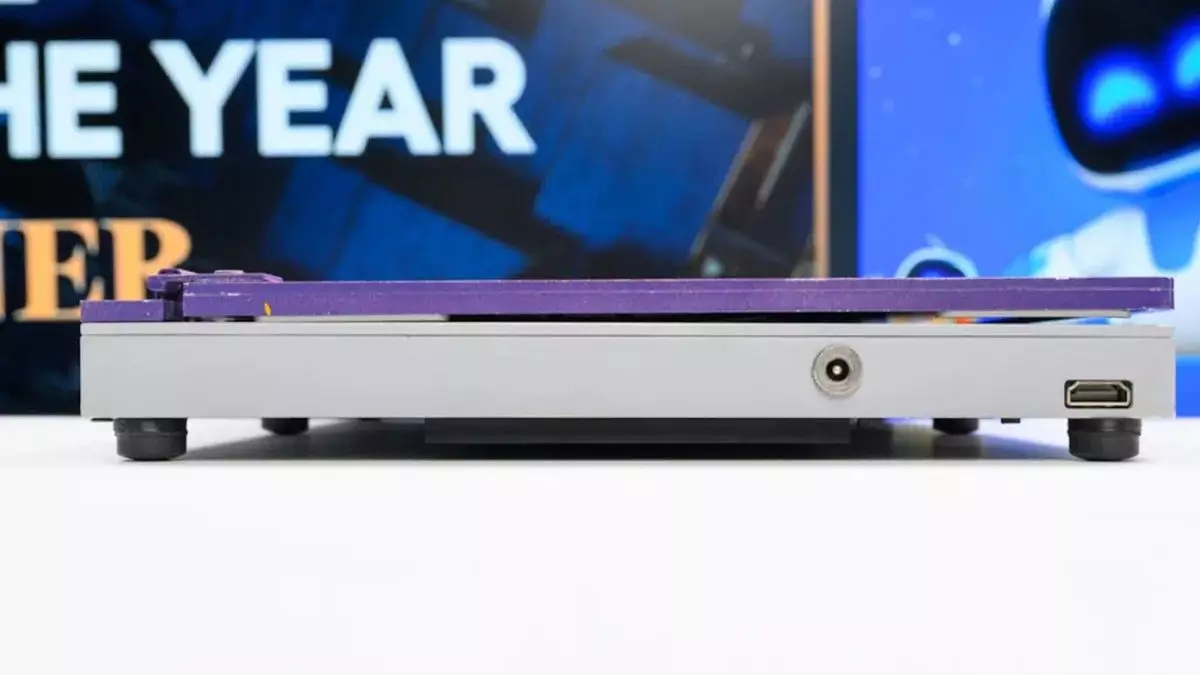In the landscape of gaming laptops, portability has long been a key selling point. However, the BBook AI Original Edition, a recent modded creation by PenBar, challenges this notion with a design that can only be described as gargantuan. Thick and hefty, this gaming laptop weighs approximately 9.5 pounds (4.3 kg) and spans over 31 mm in thickness. With a 17-inch display, it appears as though it has more in common with retro technology than modern computing. This unusual heft separates the BBook AI from its sleek, lightweight counterparts, leading many to question its role in the current era of gaming.
When visualizing typical gaming laptops, one might recall slim profiles and cutting-edge design. Yet here we have a retro-inspired monster that seems better suited for a museum exhibit than for on-the-go gaming. While its aesthetic may resonate with certain niche audiences, its physicality raises pertinent questions about its functionality and appeal. In an age where compact gaming solutions are sought after, the BBook AI’s sheer weight and bulkiness render it impractical for many gamers who crave mobility alongside performance.
Delving deeper into the BBook AI’s specifications, one might discover why it has garnered attention despite its structural shortcomings. Sporting a full-sized keyboard and a 4K IPS display, the laptop showcases a level of display quality often reserved for more polished devices. However, gamers hoping for high frame rates may find themselves disappointed, as the screen is capped at a mere 60 Hz refresh rate. This makes it less suitable for competitive gaming, where refresh rate can significantly impact performance.
What is particularly intriguing is that the BBook AI contains the same internal hardware as a standard PlayStation 5. For a gaming experience that might be somewhat appealing to fans of the PlayStation ecosystem, this could be an interesting purchase, albeit one that sacrifices convenience dramatically. The conspicuous lack of a battery raises eyebrows, as it transforms the device into more of a stationary console than a true laptop. This absence of a portable power source significantly undermines the entire premise of a “gaming laptop,” as it won’t offer the flexibility that gamers usually seek from portable devices.
Performance-wise, this modded machine isn’t without its complications. During rigorous operation, the BBook AI reportedly reaches noise levels of 71.3 decibels, comparable to that of a hairdryer. This situation presents challenges for gamers who enjoy engaging in late-night gaming sessions without waking loved ones or disturbing household tranquility. In a time when quieter, more efficient cooling systems are standard in modern gaming laptops, the BBook AI seems to hark back to a noisier era, reminding users of cumbersome desktop computers more than sleek portable gaming options.
What truly cements the BBook AI’s status as a niche product is its pricing. Estimated at around $2,748, it’s arguably steep compared to other contemporary gaming laptops with superior specs and more utility. The intriguing aspect here is the artisan mod premium that must be accounted for, which is common for unique builds, but in this case, it feels like it overshadows practicality and performance.
This leads us to ponder the target market for such a product: Is this for hardcore retro enthusiasts, gamers seeking nostalgia, or collectors of unique tech? While the craftsmanship is certainly commendable, the BBook AI Original Edition may ultimately be relegated to a conversation piece rather than become a staple in the gaming community.
The BBook AI Original Edition is a fascinating, albeit cumbersome, entry into the gaming laptop market. With its retro aesthetic and heavy build, it pushes against the boundaries of what gamers expect from portable devices today. Although the specifications and concept are intriguing, its lack of functionality as a true laptop raises significant concerns.
Ultimately, while it may attract attention and spark curiosity, the hefty price tag coupled with operational drawbacks means that most gamers might be better off looking elsewhere for a balance of performance and portability. The future of gaming likely lies not in nostalgic builds but rather in advancing technology that continues to prioritize convenience alongside robust performance.

